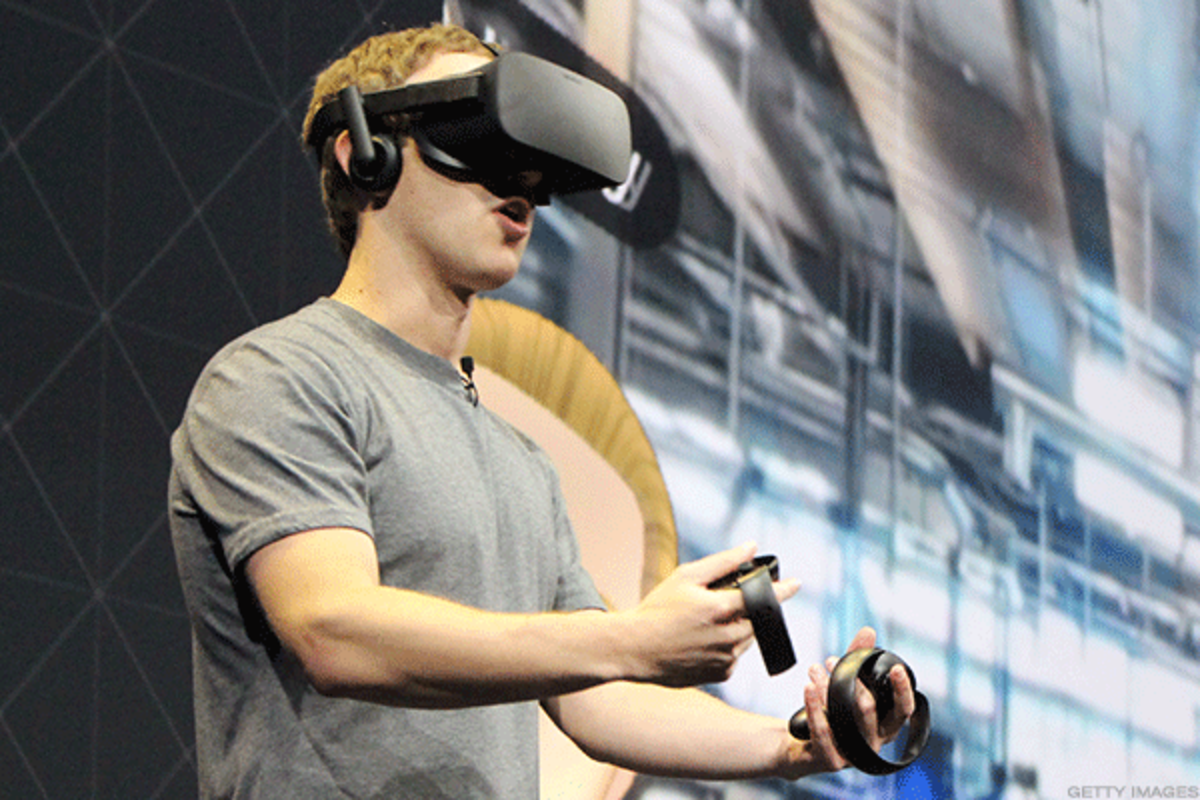Facebook Wants to Be the Remote Work Platform of the Future

This week, Facebook (FB) – Get Report CEO Mark Zuckerberg laid out a vision of work in which employees can work from anywhere using virtual workspaces. And he’s using Facebook’s own workforce as a test bed for what looks to be an ambitious long-term project. Zuckerberg said this week that he sees 50% of Facebook employees working remotely over the next 5 to 10 years. And the company appears confident enough in this prospect that it’s scaling back plans for a live-work “village” near its Silicon Valley headquarters: Facebook slashed the total square footage of office space it’s proposing 29%, according to the San Jose Mercury News. Facebook’s remote work vision goes well beyond the current standard of taking Zoom meetings at your kitchen table. In a blog post, the company wrote that its VR headset, Oculus, and video screen device, Portal, will be part of a collaborative work platform that leads to better business outcomes. And it’s already begun developing productivity tools in its Oculus Quest development platform, the post said.It’s an ambition that Zuckerberg has teased before. In a January Facebook post, Zuckerberg said that VR could help to solve “ballooning housing costs.”“Imagine if you could live anywhere you chose and access any job anywhere else,” he wrote. “If we deliver on what we’re building, this should be much closer to reality 2030.” Prior to the pandemic, surveys showed that many employees embraced remote work. Abodoo, a platform for remote work recruitment and enablement, found in a survey that remote work improves attrition 40%, and that 80% of workers would be willing to take a pay cut for a desirable remote role. It also makes financial sense for many employers.”This could transform Facebook; they could access a whole new diverse demographic, from all around the world” said Vanessa Tierney, co-founder of Abodoo. “And there are clear [financial] benefits,” given a reduced need for hefty relocation costs and other expenses tied to on-site workers. Facebook also said it will adjust salaries for workers who choose to go remote. Facebook’s technological vision for remote work is a bit more abstract, at least at this point. Sales of Oculus, which Facebook bought for $2 billion in 2014, haven’t made much of a dent so far — though Andrew Bosworth, Facebook’s head of hardware, told Protocol this week that its Oculus Quest has sold $100 million worth of content in its first year. He also said that Portals are “flying off the shelves,” though he didn’t cite unit sales for either. Zuckerberg acknowledged that VR development is “taking a little longer than we thought” on a shareholder call last year. “We’re not a company that has traditionally done hardware or built operating systems or these kinds of products,” Zuckerberg said. “I just think that we’re going to be better off when this is really ready to be a completely mainstream thing with hundreds of millions of people using it.”Facebook’s portfolio of remote work products, or products that could be used for work, goes beyond VR, AR and Portal. In total, they reflect an ambition Facebook to be the “leading platform and tool supplier for work from home, wrote Loup Ventures analyst Gene Munster. “Facebook’s suite of products and services that enable the future of work is more extensive than most realize (Workplace, Rooms, Live Producer, Portal, Oculus and a host of planned AR/VR products),” wrote Munster. “We see many prominent tech companies pushing for a more remote workforce, not only because it’s something they believe will be better for employees and their business, but because they supply the tools that make it possible.”
I’m a highly respected and well-known author in the cryptocurrency field. I have been writing about Bitcoin, Ethereum, and other digital assets for over 5 years which has made me one of the most knowledgeable voices in the space. My work has appeared in major publications such as CoinDesk, Forbes, and The Wall Street Journal. In addition to my writing, I’m also an active investor and advisor in the cryptocurrency space.
